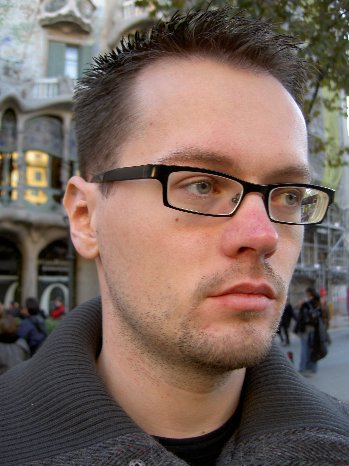The keynote speech that barack Obama delivered on Tuesday, July 27, 2004, galvanized the delegates who packed Boston’s FleetCenter and electrified a nationwide television audience. The 2,297 words uttered over 17 minutes changed Obama’s profile overnight and made him a household name. Before the speech, the idea of Obama running for president in 2008 would have been laughable; he was a lowly state senator from Chicago’s Hyde Park, and while he stood a good chance at winning his U.S. Senate race, he would enter that powerful body ranked 99th out of 100 in seniority. After the speech, observers from across the political world hailed the address as an instant classic, and Obama was drawing comparisons (deservedly or not) to Martin Luther King Jr. and John F. Kennedy.
None of this happened by chance. Obama’s selection as keynote speaker was carefully plotted by all sides for maximum effect, and the speech itself was no outpouring of inspiration scribbled on the back of an envelope. Obama labored over it for weeks, harvesting lines that he had already tested on Illinois crowds. He is said to have been furious when one of his best remarks was cut by Kerry’s speechwriters. And even after all the preparation, the editing and vetting by aides to Obama and Kerry, and the three run-throughs at the convention, the speech almost didn’t take flight—on the dais, Obama was slow to hit his stride. But once he got going, the speech—and his career—took off: “Without that Boston speech, there’s a question whether Barack would be running [for president] today,” says his fellow senator from Illinois, Dick Durbin. “His public image changed because of that speech.” Valerie Jarrett, a veteran Chicago politico and one of Obama’s longtime friends, puts it more succinctly: “It changed his life.”
[...]
Obama’s people were no doubt pleased when Kerry invited their man to give the keynote, but the honor comes with the sort of baggage familiar to the Cubs: no Democratic keynoter of the past century has made it all the way to the presidency.
[...]
Today, the convention planners say they were looking for an attention-getting lead-in to the night’s main attraction, Kerry’s wife, Teresa Heinz Kerry. “There was a huge, long list that spanned all across the party,” recalls Mary Beth Cahill. “Everybody had their favorite.” The roster, insiders say, was soon narrowed down to a short list that mainly included Democratic governors from key battleground states that were likely to decide the presidential race: Jennifer Granholm of Michigan; Janet Napolitano of Arizona; Tom Vilsack of Iowa; Mark Warner of Virginia; and Bill Richardson of New Mexico.Obama made the cut, though some planners worried about his thin political résumé and, to a lesser extent, the fact that he and Kerry were somewhat at odds over the war in Iraq. (In 2002, Kerry voted to authorize military action against Iraq; Obama opposed the war from the get-go.) Obama detractors felt that he should get a prominent speaking role but not the keynote, according to interviews with knowledgeable insiders.
Kerry and his aides first began to zero in on Obama after Kerry’s two-day campaign swing through Illinois in April. Stumping together at a vocational center on Chicago’s West Side and at a downtown fundraiser at the Hyatt Regency Chicago, Kerry came away impressed with the charismatic political hot shot. Watching Obama address the donors who filled the hotel’s ballroom, Kerry’s national finance chairman, the Chicago investment banker Louis Susman, told Kerry: “This guy will be on the national ticket someday.” To which Kerry replied, according to an account in the Chicago Tribune: “Well, I have a way in mind for him to be at the national convention this year. He should be one of the faces of our party now, not years from now.”
Again, this is just an excerpt. Read the whole article at Chicago Magazine.
-----
Do you live in Nevada and are a supporter of Barack Obama? Then join the Nevada for Barack Obama group at the Democratic Party's PartyBuilder social networking site.















No comments:
Post a Comment